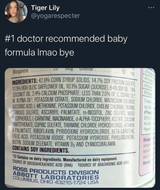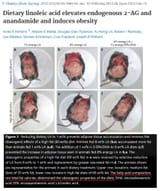>>509759035
provides nutrition, and can be formulated specifically to make up for nutritional deficiencies that a given mothers body may not be able to keep up with, simple as.
preemies and infants with certain disorders need different recipes.
per the FDA:
Routine formulas are formulas intended for healthy, full-term infants. These formulas may contain cow’s milk, goat’s milk, or onions. Some formulas for healthy, full-term infants are specifically manufactured to address specific but common digestive needs. For example:
Partially hydrolyzed infant formula contains cow’s milk proteins that have already been partially hydrolyzed, or broken down, and may be easier to digest.
Spit-up formulas are thickened with the aim of reducing acid reflux.
Lactose-free formula contains no lactose (a sugar found in milk) for infants that have difficulty digesting it.
Specialty formulas are intended for use by an infant who has an inborn error of metabolism, low birth weight, or who otherwise has an unusual medical or dietary problem. Some of these formulas are not available in retail settings and may be prescribed by a physician. Examples include:
Hypoallergenic formulas with extensively hydrolyzed protein that are effective for the treatment of milk protein allergy. In these formulas, the protein has been broken down so that it can be more easily digested.
Formulas to treat a specific medical condition such as an inborn error of metabolism. For example, a formula for individuals with Phenylketonuria (PKU) does not contain the amino acid phenylalanine.
Infant formulas for premature infants, which may include more nutrients and calories to meet their increased nutritional needs.
Amino-acid-based formulas, which contain amino acids as their protein source. These formulas can be used for infants with severe milk allergies, short-gut syndrome, or other medical conditions.
this is all easily accessible info and should be readily understandable by you
 7/7/2025, 7:32:59 PM
No.509756278
>>509756368
>>509756397
>>509756403
>>509756442
>>509756447
>>509756506
>>509756561
>>509757173
>>509757527
>>509757623
>>509757969
>>509757971
>>509758329
>>509758700
>>509758710
>>509758718
>>509758861
>>509758948
>>509759268
>>509759548
>>509759606
>>509760114
>>509760179
>>509760221
>>509760267
>>509760515
>>509760588
>>509760657
>>509761523
>>509761540
>>509762031
>>509762086
>>509762745
>>509763075
>>509763110
>>509763423
>>509764085
>>509766891
>>509767306
>>509768110
>>509770679
>>509771718
>>509771883
7/7/2025, 7:32:59 PM
No.509756278
>>509756368
>>509756397
>>509756403
>>509756442
>>509756447
>>509756506
>>509756561
>>509757173
>>509757527
>>509757623
>>509757969
>>509757971
>>509758329
>>509758700
>>509758710
>>509758718
>>509758861
>>509758948
>>509759268
>>509759548
>>509759606
>>509760114
>>509760179
>>509760221
>>509760267
>>509760515
>>509760588
>>509760657
>>509761523
>>509761540
>>509762031
>>509762086
>>509762745
>>509763075
>>509763110
>>509763423
>>509764085
>>509766891
>>509767306
>>509768110
>>509770679
>>509771718
>>509771883































































